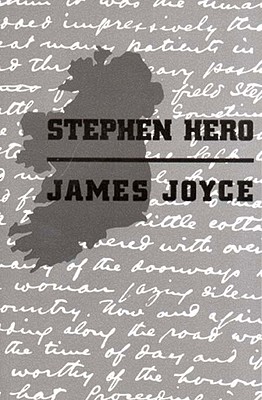APS TOGETHER
Day 8
Stephen Hero by James JoyceXXII, pp. 144-163
January 19, 2022 by Belinda McKeon
There’s great energy in the language with which Maurice Daedalus criticizes Cranly, who has gone to be with his family in Wicklow for the summer; we’re told his opinion of his brother’s friend stems “not from jealousy but from an over-estimate of Cranly’s rusticity,” which leaves one to shudder at what kind of insults Maurice might cook up if he really were jealous. Cranly is rustic, firstly, which for Maurice means that he is “a mass of cunning and stupid and cowardly habits,” he never thinks until someone speaks to him “and then he [gives] birth to some commonplace which he would have liked to have been able to disbelieve.” And my favorite: “he could talk like a pint.” All of this came directly from the diary of Stanislaus Joyce, who recorded his opinion of James’s friend JF Byrne; having read the diary, James then recorded the phrases in his own Pola notebooks.
Stephen’s summer is spent wandering the city, being regarded with suspicion by police officers, whose “great cow-like trunks…swing slowly around after him,” and looking with disgust at the priests who walk the same streets, checking on their “swarming and cringing believers.” It’s here that Stephen articulates the concept which will preoccupy Joyce in his earliest fiction: he sees around him a city of inhabitants who have entrusted their wills and minds to others “that they may ensure for themselves a life of spiritual paralysis.”
This chapter also offers a further encounter with Emma Clery, with whom Stephen parted on ambivalent terms in Chapter XVII. They’re both leaving the National Library at the same time—when Stephen is not walking the streets, he’s hanging around the library, talking to the other young men who are passing the time in there, or leafing through such random volumes as—here, Joyce couldn’t quite decide—“[a dictionary of music] a medical treatise on singing.” Emma, who definitely firms up in this chapter as an early prototype of Miss Ivors from “The Dead,” has been studying old Irish, and as Stephen walks her home, she chides him for having tired so quickly of the Gaelic League. Their conversation, as they skirt St Stephen’s Green, within which couples claim their privacy against the “chains” (fences), is flirtatious and lively, and Stephen is urged afterward by his acquaintance Moynihan to return to the Sunday afternoon gathering at the house of the Daniels family, where Emma persuades him to sing “an Irish song.” His choice, “My love she was born in the North Countree,” is one of the songs sung in “fine tenor” (Freeman’s Journal) by Joyce at the Antient Concert Rooms in August 1904 when he was one of the performers in a concert staged as part of an “Exhibition of Irish Industries” taking place during Dublin Horse Show week. Joyce was trying to make money by singing at this time; he in fact told the writer Oliver St John Gogarty of a plan to go on tour in the south of England, singing Elizabethan songs and playing the lute. The lute he hoped to commission from the instrument-maker Arnold Dolmetsch, who had recently made Yeats a harp-like Ancient Greece-inspired instrument called a psaltery, and Joyce wrote to Dolmetsch on June 16, 1904, asking for his lute, but Dolmetsch could not provide, at least not for the sum Joyce could afford to pay. All of this is ABSOLUTELY BONKERS, I am aware, but I had to mention it.
Meanwhile, Stephen’s father is so behind on the rent that the family is facing homelessness. Under dubious circumstances, and under cover of darkness, they move to a nearby building, a once-grand mansion which is now in mostly abandoned apartments and falling into decay. A piano survives in the former drawing-room. It’s here Stephen is sitting, lost in his thoughts, “his soul comiming[ling] with the assailing, inarticulate dusk” when his mother appears, pleading for his help with Isabel, whose illness has shadowed the chapter and has now entered its final stages. It’s a stunning moment, visceral and heartbreaking, with Stephen’s mother coming to her son, the university man, the scholar, in the hopes that he might know something about the terrible new symptom (likely a perforated intestine) which has appeared: “some matter coming away from the hole in Isabel’s…stomach…The hole…the hole we all have…here.” Does Stephen know anything about the body, his mother pleads? Did he ever hear of that? “What hole?” is all Stephen can say as reply.
